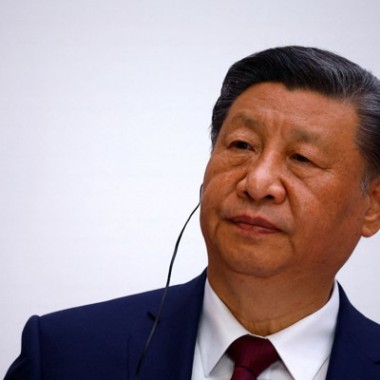China’s effort to take over Taiwan without firing a shot: How influence operations, cyber-weapon hoarding, and intimidation factor into China’s Taiwan play ( www.defenseone.com )
China isn’t just trying to intimidate Taiwan militarily, it’s also working harder than ever before to make Taiwan’s leadership appear corrupt, public institutions look fragile, and the military seem weak in order to undermine public confidence in the government.
At the same time, China is stock-piling new cyber weapons that could potentially cripple Taiwan’s infrastructure in a time of crisis. The goal is essentially to achieve annexation without having to resort to a full military invasion, according to a new report from Booz Allen Hamilton.
Just days after Taiwan’s new president William Lai gave his inauguration speech last week, the Chinese military began large-scale military exercises around Taiwan, called Joint Sword 2024. But don’t let the theatrics fool you, researchers said. “The PRC wants to have the ability to seize Taiwan by force, but only if it feels its hand is being forced to take action,” one analyst with Booz Allen Hamilton who worked on the report told Defense One.
Those exercises followed months of active social media influence campaigning aimed at both Chinese and regional audiences, measures that weren’t just designed to boost China’s preferred candidate, the report notes.
“By crafting narratives that portray the government as either corrupt, incompetent, or both, the PRC seeks to destabilize Taiwan’s political environment. This approach not only sows internal discord, but also threatens to weaken Taiwan’s global standing. The success of this tactic hinges on the PRC’s ability to play on and worsen citizens’ existing concerns, thereby deepening divisions within Taiwanese society,” the report says.
The researcher told Defense One that China’s objective is to convince people, from leaders and politicians to average citizens, to essentially abandon the cause of a free and independent Taiwan.
“The PRC is really interested in controlling the cognitive domain. You need to control the systems on which information resides, the context in which we discuss information, but then also how this affects, at the end, how we make decisions. So that is what these information operations are trying to do is try to affect decision making.”
China would greatly prefer to take over Taiwan without resorting to military violence, the analyst said. But first it must create the appearance of superiority—not just militarily, but in virtually all other spheres of human activity. One way they can do that is an accumulation of so-called zero-days, essentially cyber attacks for which no defense exists, to cripple essential services and even the military.
“The PRC’s implementation of a 2021 zero-day disclosure law appears to show Beijing stockpiling vulnerabilities in industrial control systems (ICS),” the report notes. “The law requires software and hardware manufacturers to report vulnerabilities to Beijing within two days of discovery and restricts public disclosure and sharing with foreign entities until resolved.”
U.S. officials for months have said China is growing increasingly bold in the institutions it's targeting with cyber attacks, as exemplified by the Volt Typhoon hacking group targeting U.S. infrastructure. But China is still looking to carefully manage the escalation of cyber-effects, the analyst said.
All of those efforts are interlinked to attempt to maximize the perception of China as strong, while also sowing doubt in the minds of Taiwan's leadership, he said.
As the report notes, “The PRC’s engagement in overt forms of national power, such as military posturing, economic initiatives, and diplomatic pressure, often coincides with stealthy cyber operations. This pattern suggests that overt PRC actions in any domain are relevant indicators of accompanying cyber strategies aimed at complementing and reinforcing these public efforts.”
The report lays out a variety of recommendations for what to do about China’s interconnected intimidation campaign. One of the most important: bolster the cyber defenses of regional actors around Taiwan, which would add to the cyber resilience of Taiwan itself.
“Other countries in the wider Indo-Pacific region play a crucial role in resisting the PRC’s attempts to shift the region’s balance of power. By bolstering the cyber capabilities of these regional partners, the U.S. not only counters the PRC’s expanding influence but also ensures a unified front against potential cyber threats. This is crucial for maintaining stability and deterring aggression in this geopolitically sensitive area.”
